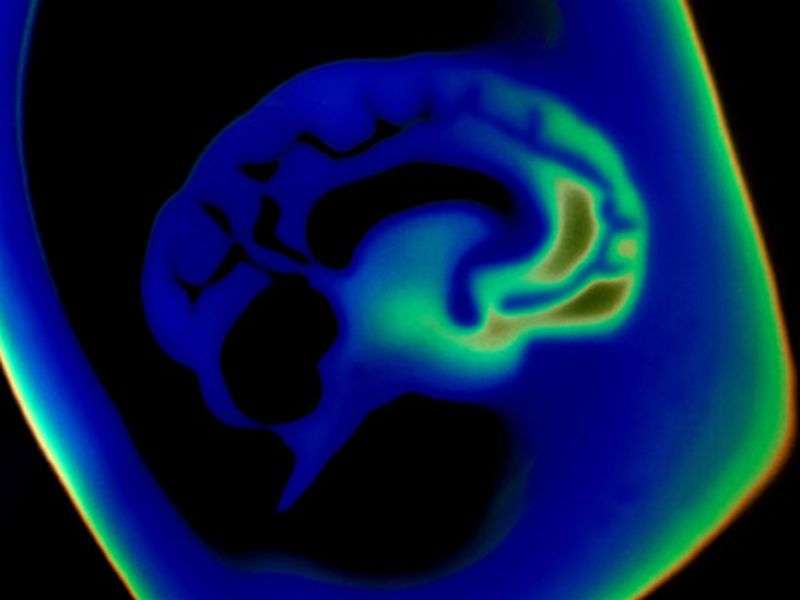Alcohol aids cerebellar deficit from movement disorder

(HealthDay)—Alcohol improves cerebellar-learning deficit in the movement disorder myoclonus-dystonia, according to a study published online Sept. 4 in the Annals of Neurology.
Anne Weissbach, M.D., from the University of Lübeck in Germany, and colleagues studied 17 myoclonus-dystonia patients with epsilon-sarcoglycan (SGCE) gene mutation and 21 age- and sex-matched healthy controls. Cerebellar associative learning and basal ganglia-brainstem interaction were assessed through classical eyeblink conditioning and blink reflex recovery cycle before and after alcohol intake resulting in a breath alcohol concentration of 0.08 percent.
The researchers found that patients showed a significantly reduced number of conditioned eyeblink responses before alcohol administration versus controls. In controls, the conditioning response rate decreased under alcohol intake, but in patients it increased (P = 0.004). The groups did not differ with respect to the blink reflex recovery cycle before and after alcohol intake. After alcohol intake, myoclonus improved significantly (P = 0.016). In patients, the severity of action myoclonus at baseline negatively correlated with the conditioning response in classical eyeblink conditioning.
"The combination of findings with reduced baseline acquisition of conditioned eyeblink responses and normal blink reflex recovery cycle in patients that improved significantly by alcohol intake suggests a crucial role of cerebellar networks in the generation of symptoms in these patients," the authors write.
More information:
Abstract
Full Text (subscription or payment may be required)
Copyright © 2017 HealthDay. All rights reserved.














